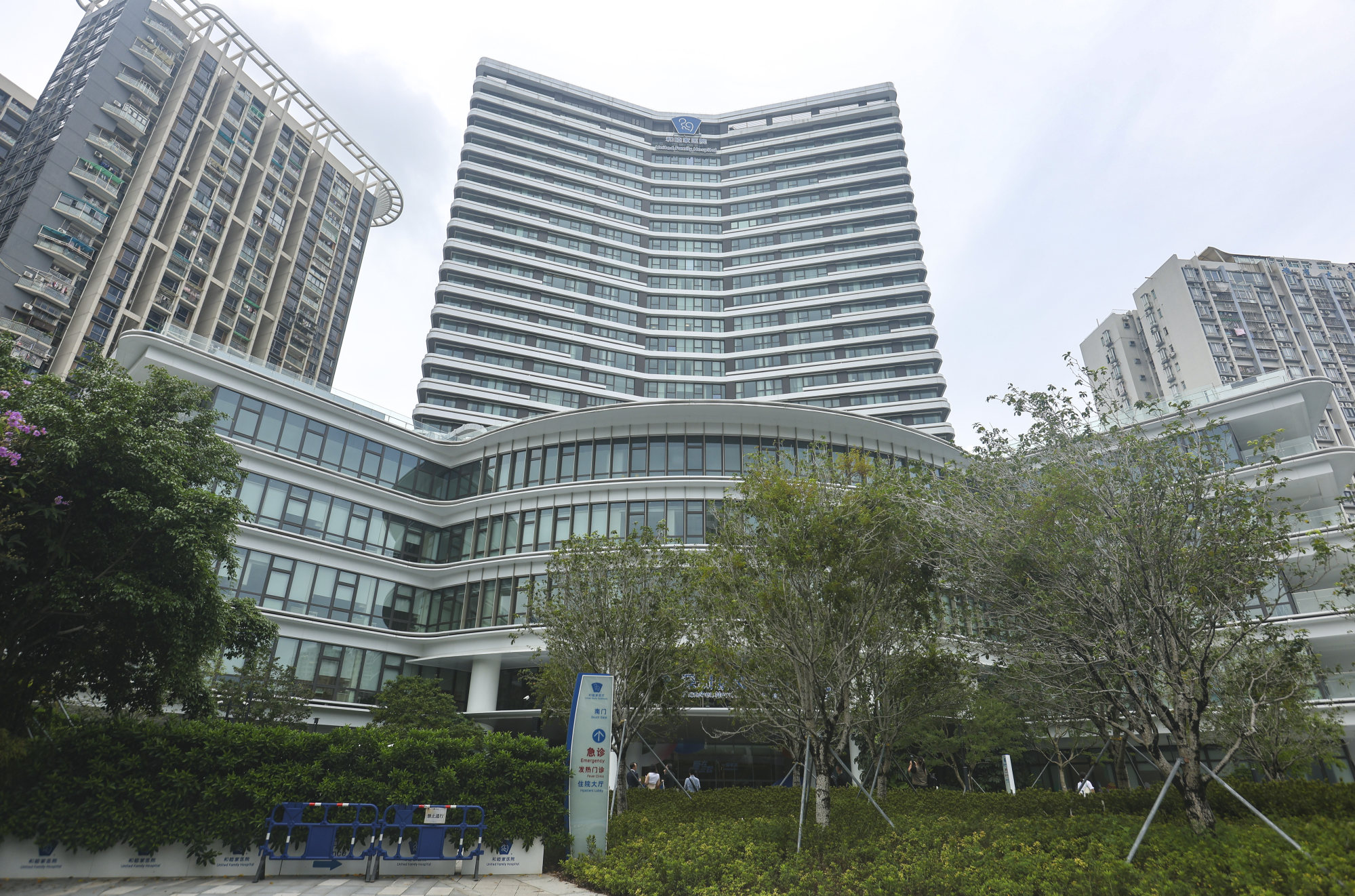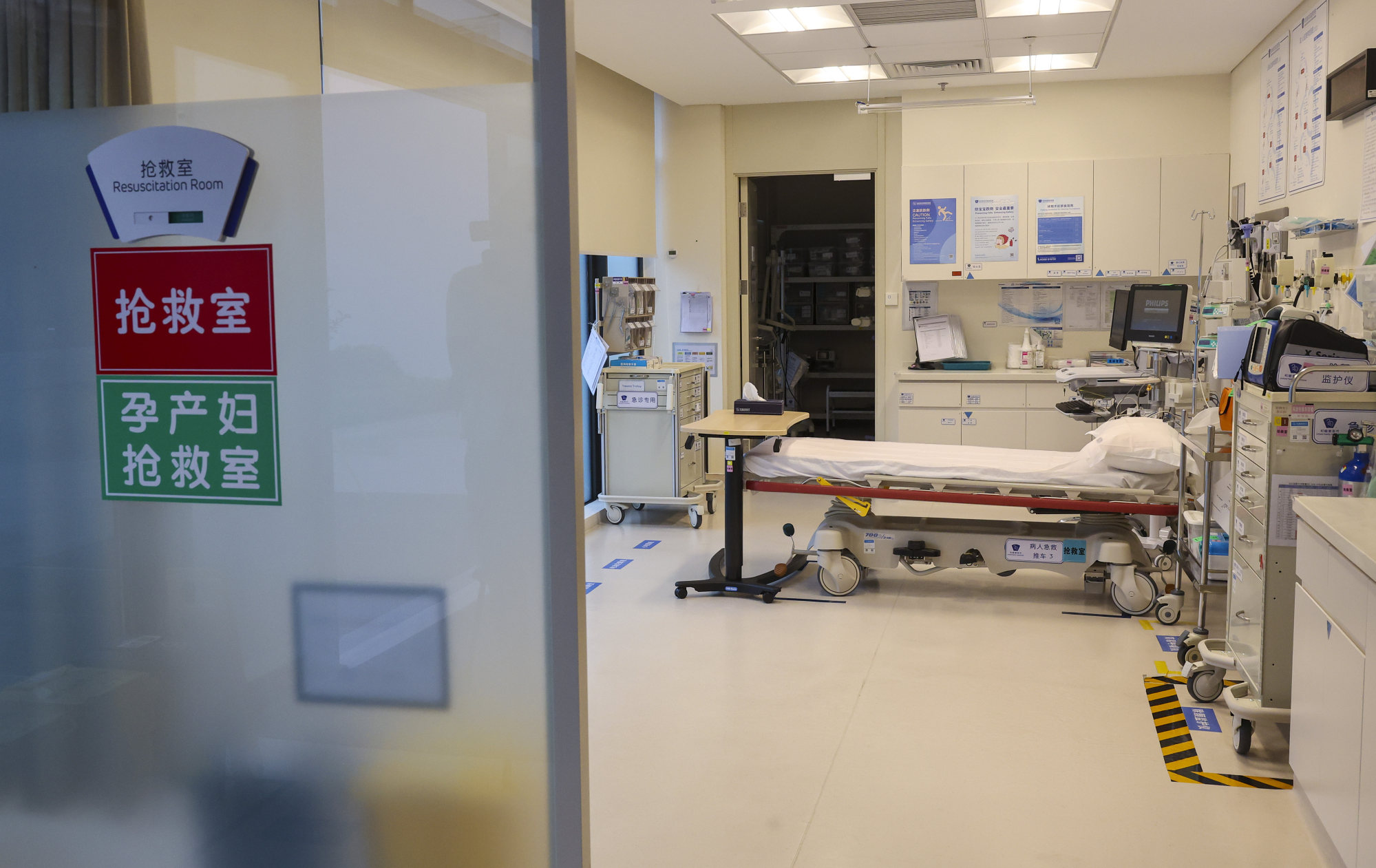
Cross-border healthcare services can ease burden on Hong Kong’s public hospitals, but payment matters must be addressed, ex-finance chief Antony Leung says
- Shenzhen United Family Hospital is interested in serving Hong Kong patients to reduce waiting times in city, former financial secretary Antony Leung says
- But Leung says issues such as who should pay for services must be addressed
Cross-border medical services can help relieve the burden on Hong Kong’s public healthcare system, but matters such as who should pay for treatments must be addressed at the policy level before forging any partnerships, a former finance minister has said.
Former financial secretary Antony Leung Kam-chung said Shenzhen United Family Hospital, a private institution run by the New Frontier Group which he co-founded, was interested in serving patients in Hong Kong’s public healthcare system under a partnership to reduce waiting times.
“In Hong Kong public hospitals, the waiting time is very long for non-emergency cases. We think since we have the capacity and ability, we can serve the public in the city,” he said last Thursday during a meeting with the press at the facility.
Mother’s death after childbirth at Hong Kong hospital referred to watchdog
But he said a few issues had to be addressed on the policy level before establishing a partnership with Hong Kong’s Hospital Authority.
“The biggest question is who should pay for the services. As for public hospitals, patients only need to pay around HK$100 [US$13]. But the cost for the authority is more than HK$100.
“I believe the authority and the government will discuss whether they can adopt some mechanisms or allow patients to use medical vouchers for services at suitable healthcare providers in mainland China.”
The statutory body has a number of public-private partnership programmes to provide services such as screening for colorectal cancer, CAT scans, MRI scans and cataract surgery.

The city’s Health Bureau launched a pilot scheme in May to allow eligible Hongkongers living in the Greater Bay Area to receive subsidised medical consultations at the University of Hong Kong-Shenzhen Hospital.
The Shenzhen United Family Hospital, near the Futian station on the high-speed rail link, has made available 120 of its 350 inpatient beds and half of 50 planned specialities since its launch last year.
Hong Kong to deepen collaboration between traditional Chinese and Western medicine
Leung said the hospital had been accredited by the United States-based Joint Commission International, which certifies healthcare companies, services and programmes.
“Compared with private hospitals in Hong Kong, our services are cheaper and the waiting time is much shorter,” he said.
He provided the example of CAT scans, saying the hospital used imported scanners that were internationally recognised and charged HK$2,000 to HK$3,000 for screenings, which was 50 to 60 per cent of the cost at private hospitals in the city.

Brian Siu Ngai-fong, executive director of New Frontier and its chief operating officer for the bay area, said about 10 to 20 per cent of the hospital’s patients were Hongkongers either living in the city or on the mainland.
He said the Hospital Authority might also need to adopt a mechanism to ensure the quality of healthcare providers on the mainland was high enough to warrant a partnership.
“It may need to find a way to accredit the hospitals and doctors that meet certain standards. If the hospital is up to standard, the authority may need to set pricing that will be acceptable for both parties,” he said.
Change rules so more Hong Kong doctors can work on mainland: ex-health secretary
“It may also need to figure out how to transfer patient information at public hospitals to the mainland. It will have to look into permits, the format of the transfer and privacy, as well as patient consent so that it’s clear that the transfer is for single use instead of general permission for use anywhere on the mainland.”
He said monitoring the quality of services would also be crucial to protect patients and ensure public funds were being used appropriately.
The Post has contacted the authority for comment.

Alex Lam Chi-yau, a lawyer and chairman of advocacy group Hong Kong Patients’ Voices, said there could be demand for such partnerships as cross-border transport had become more convenient and the type of personal data that needed to be shared for certain screenings would not pose a concern.
“If someone on the mainland uses the data illegally, Hong Kong’s law will not be able to punish them,” he said. “But for example, if the authority refers a patient to undergo a CAT scan on the mainland, it will not involve their personal background and medical records, thus it would not be a huge concern.”
Hong Kong welcomes more Guangdong healthcare workers under exchange programme
Francis Fong Po-kiu, honorary president of the Hong Kong Information Technology Federation, said the government should prioritise patient consent when it came to data transfers to the mainland.
He added hospitals should adopt end-to-end encryption for the data to prevent third parties from accessing it.

